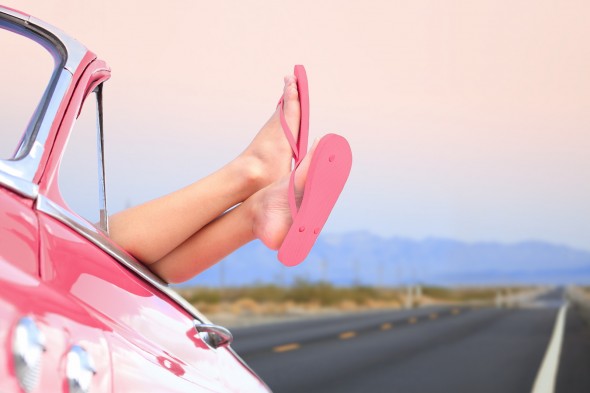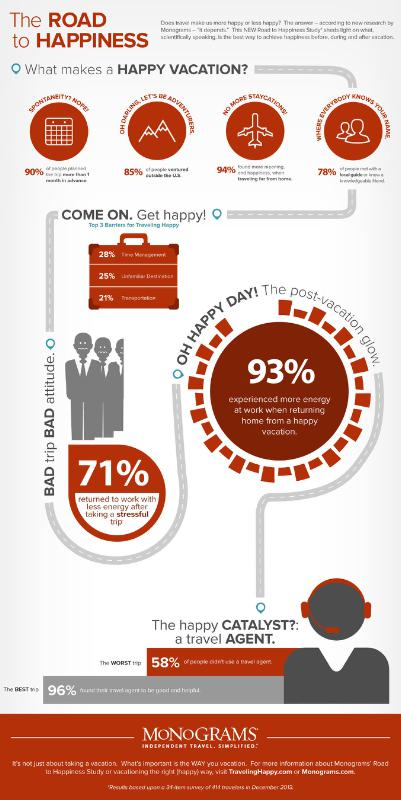
Can vacations make you happy? According to a “Road to Happiness Study,” by Monograms travel company and Shawn Anchor, PBS personality and leading author of books on happiness and human behavior, four primary ingredients must be in place if you are to have a happy travel experience.
Minimizine stress. When asked about their best trips, only 4 percent of those polled reported feeling stressed. Conversely, on their worst trips, stress played a big role for more than 60 percent of people. Specifically, the biggest vacation stressors were:
- Wasting time figuring things out (28%)
- Being unfamiliar with the destination (25%)
- Managing transportation (21%)
Planning ahead. If you want a happy vacation, check spontaneity at the door. According to Shawn Achor, author of The Happiness Advantage, “This new research reveals that the best – and happiest – vacations were those in which the planning was done more than one month in advance. Planning ahead reduces stress and increases the opportunity to anticipate the getaway. And anticipation offers a great happiness advantage.”
Making a local connection. On their best trips, 78 percent of happy travelers knew a knowledgeable friend at the destination or met with a local guide. “When you meet-up with a local guide or someone you know, you are better able to connect with the destination. And creating a connection with people and places, cultures and histories, allows us to open our minds and increase our chances of experiencing happiness,” said Achor.
Going far away. The Monograms’ Road to Happiness Study with Shawn Achor also revealed that 85 percent of travelers admitted their best trips over the past five years were in locations outside their home country. This research mirrors a recent Twitter study that showed that the happiness levels of tweets increased with (geo-tagged) distance from home.
“Travel requires getting up off the couch, but it’s worth it and you can do it on a budget,” says Anchor. “Staycations just don’t bring the same happiness and meaning that travel does. Some 94% of travelers found vacationing far from home to be meaningful – and offering more happiness –than those who stayed home.”
According to the Road to Happiness results, when travelers vacation the right way, adopting the above ingredients, 93 percent of them reported having more energy after returning from their trip — something Achor refers to as a “post-vacation glow.” Conversely, 71 percent of those who reported having stressful trip also reported returning to work with less energy.
“Traveling the world can be an amazing – and even better – a happy experience! It should be. You just have to know how to do it right,” said Achor. “We knew traveling the world can ‘cross train’ your brain to help you see more possibilities in life. But, based on this new research, we have found that travel can also make people happier, healthier and more productive. Not all travel creates happiness, though. There is a specific formula needed to make the most of a vacation, allowing us to increase our happiness and overall energy. And having a boost in energy after vacation is a desired result.”


































































































































































































































































































Get Social